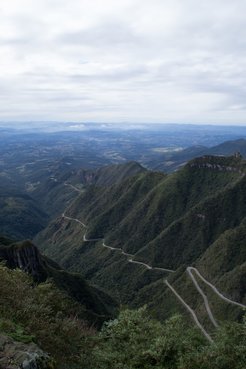Research into Impacts of Human Occupation on the Brazilian Atlantic Rainforest Receives Funding
Research teams from the Max Planck Institute of Geoanthropology (Germany), Bournemouth University (UK), and the University of Göttingen, have been jointly funded by the German Research Foundation (DFG) and the Arts and Humanities Research Council (AHRC) of the United Kingdom

An international team of researchers is preparing to explore how human occupation and land use over hundreds of years has affected the Brazilian Atlantic Forest – one of the most critically threatened tropical forests in the world. With funding from the Deutsche Forschungsgemeinschaft (DFG - 508327862) and the AHRC, scientists will use historical, archaeological and ecological data to produce an ‘atlas of human impact’ and inform future conservation efforts.
The Atlantic Forest, a global biodiversity hotspot running along the eastern coast of Brazil, is one of the most threatened environments in the world. The forest ecoregion is home to two of the world’s most populous cities - São Paulo and Rio de Janeiro – and produces 70% of Brazil’s gross domestic product. With an estimated 12 per cent of the original forest area remaining, the Atlantic Forest is now the subject of extensive conservation and restoration efforts.
To inform these efforts, the project will study human impacts on three critical time periods for the Atlantic Forest, each representing a major transition in human activity: Pre-Columbian (before AD 1500), Early Colonial (AD 1500-1700), and Late Colonial (AD 1700-1808).
Dr Patrick Roberts, leader of the Germany-based team, says of the project: “For the first time in this region, we will seek to build models of past land use based on detailed historical, archaeological, and palaeoenvironmental data, enabling us to ‘map’ changing land use across space and time.”
The researchers will use the ancient plants remains, lake core sediments, archaeological and historical insights into past settlement and demography, and novel models of changing land use to identify major thresholds in changes in human-environment interactions in the Atlantic Forest over the past 500 years, and explore how knowledge of these thresholds can aid the development of effective conservation goals and policy.
“Given the importance of tropical forests in the operation of a variety of earth systems, our research will investigate the degree to which human impacts on landcover may have initiated regional feedbacks whose legacies last until today,” Roberts adds.
Dr Phil Riris of Bournemouth University, the lead investigator in the UK, concludes, “As the climate changes, people living in and around the Atlantic Forest are going to face increasing ecological and societal precarity. If we can contribute in some small way to understanding how people have shaped their environments in the past, including in a positive way, maybe there's hope for us to do that as well.”
